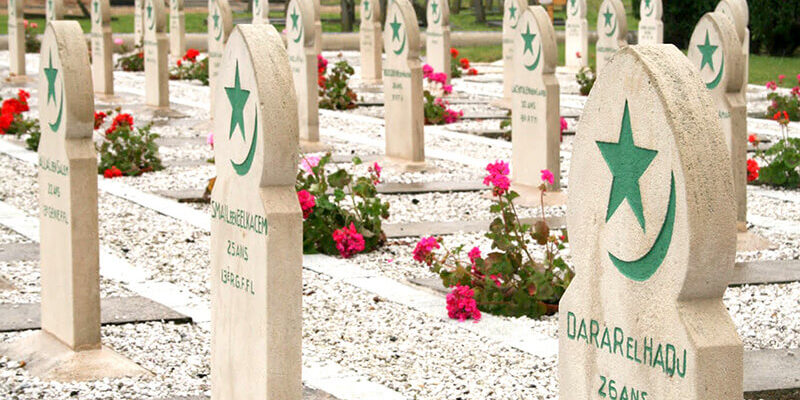Muslims face a growing problem with burial space. Islamic laws require specific burial practices. Each person needs a separate grave. Bodies must point toward Mecca.
The global Muslim population keeps growing. Cities struggle to find enough burial land. This creates problems in many countries. Some communities send bodies back home.
Islamic rules say graves must stay forever. But new ideas help solve space problems. Some scholars approve grave reuse after many years. The bones turn to dust in the soil.
Kuwait solved its space problem with computers. A digital system tracks open grave spots. This helps cemetery workers plan better. Families find burial spaces faster.
Malaysia found a different answer. They build concrete vaults in the ground. These let them stack graves up and down. Each body still gets its own space.
Some Muslim cities build vertical cemeteries. These work like buildings with many floors. Each level holds separate grave spaces. Engineers make sure they stay safe.
Muslim groups in Europe buy private land. They create their own burial grounds. This gives them control over traditions. It helps keep costs lower.
Desert areas have more room for graves. But they face other problems. Water tables limit how deep they can dig. Good planning protects the ground water.
Green burial helps save space too. Bodies go into simple graves. No concrete vaults block nature’s way. The earth reclaims the space faster.
Modern tools make burial planning easier. GPS marks exact grave spots. Better maps show all the spaces. Good records track who lies where.
Some countries give free burial plots. This helps poor families follow their faith. Qatar offers land to its people. Saudi Arabia does this too.
Muslims in the West face hard choices. They might use mixed-faith cemeteries. Some build special memorial gardens. These follow Islamic rules.
City planners work with Muslim leaders. Together they find new cemetery land. They make rules that work for everyone. This helps communities grow.
The future needs more answers. Cities keep getting bigger. Muslim populations grow too. Leaders seek new solutions.
Each place finds its own way. Local customs shape the choices. Communities adapt to their needs. Faith guides these changes.
Technology offers new options. Better planning saves space. Digital records prevent mistakes. Smart design uses land well.
Some nations try shared grave sites. Old graves see new use after many years. This follows some Islamic teachings. Not all scholars agree.
Money affects burial choices. Transport to home countries costs much. Local burial saves families money. New methods keep costs fair.
Muslim communities keep learning. They find ways to meet their needs. Space limits push new thinking. Core beliefs stay strong.
The burial land problem grows. But Muslims find ways forward. They balance faith with function. Solutions come from many places.







